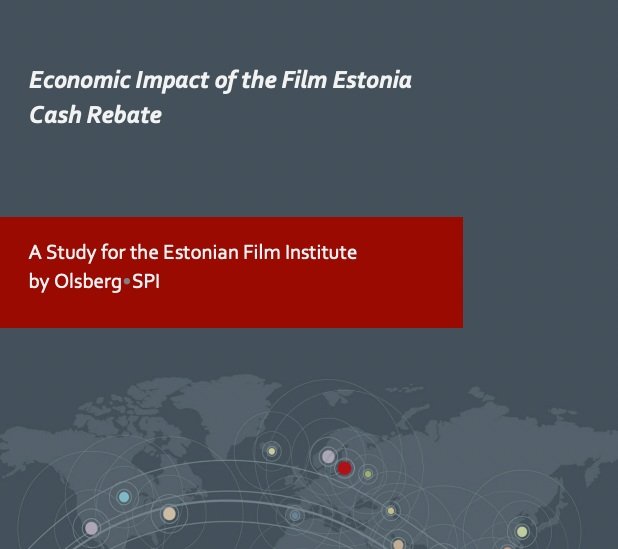SPI Study on the Economic Impact of the Film Estonia Cash Rebate Published
SPI’s evaluation of the Film Estonia Cash Rebate, commissioned by the Estonian Film Institute, has recently been published.
The study focused on the economic impact of the incentive in 2021. The study found the incentive:
Generated €8.5 million in additional production expenditure
Generated €8.2 million in Gross Value Added
Was responsible for 189 full-time equivalent jobs
Generated €2.7 million in additional tax receipts.
The study also found that the incentive had a strong return on investment, with each €1 of net investment in the incentive in 2021 providing a total of €5 of value created in the economy.
The economic impact uncovered was found to be broad and wide-reaching. Analysis of an incentivised production found that 60% of its ‘below-the-line’ technical expenditure took place outside of the screen sector, with construction and hospitality benefitting from production expenditure. Additionally, the supply chain of vendor businesses had a wide geographical footprint, with significant pockets of expenditure occurring outside Tallinn, Estonia’s capital city and main production hub.
The incentive takes the form of a cash rebate of up to 30% of expenditure, and since the inception of the incentive in 2016 has mostly maintained a cap of €2 million, which was recently raised to €5.4 million, in April of 2022.
The incentive takes the form of a cash rebate of up to 30% of expenditure. Since its launch in 2016, the cap was around €2 million, which was recently raised to €5.4 million in April 2022.
If you would like to hear more about this study, please email SPI Senior Consultant Eleanor Jubb on eleanor@o-spi.com.
Further information on SPI’s impact studies can be found here.

